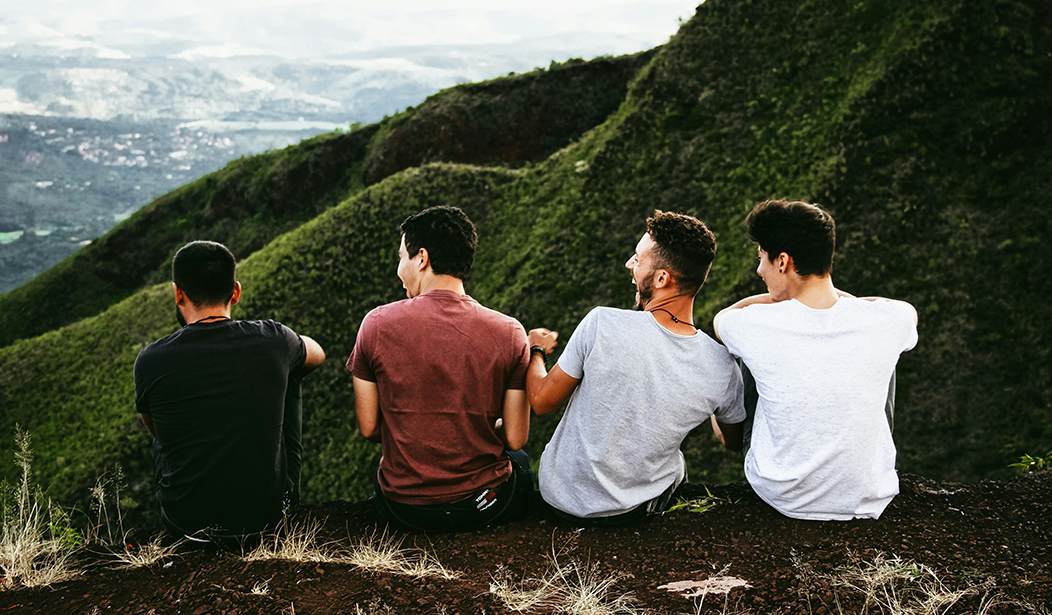We humans are social critters. Being around other people is important, but more to the point, it's who we are around that matters.
Yes, I understand; many readers who are familiar with my work may have raised eyebrows right now, knowing that we live out in the Alaska woods, and sometimes a week or more will go by without my wife or me seeing another person. We're probably a bit unusual in being happy with our isolation, but more to the point, when we do see other people, it's often people with whom we maintain friendships. That's because it's not so important how many people you surround yourself with; it's who those people are, and what they mean to you.
A recent essay at the Pacific Research Institute examined the problems with loneliness in our major cities, and it is thought-provoking. Yes, it's possible, it seems, to be literally surrounded by millions of people, and still feel isolated.
Urbanists have a new item for cities’ to-do lists: Fix America’s loneliness crisis. And their preferred tool? Public spaces.
The William Penn Foundation’s Shawn McCaney is typical. He believes the nation’s “lack of social connection” is partly due to “not enough high-quality public places.” After all, “we’ve deprioritized investment in our shared civic spaces for at least a generation, leaving us with inadequate parks, trails, libraries and community centers, along with a backlog of maintenance issues for the spaces that do exist.”
Planner Susan Henderson wants to “rethink what it means to create shared spaces,” and “design environments that heal, connect and inspire.” The University of Michigan School of Public Health’s Lindsay Kobayashi concurs. She advocates for public spaces “that encourage interaction” and urban planning “that prioritizes human connection.”
Make no mistake—the social-capital collapse is real. The data are sobering, if not depressing. Writer Derek Thompson documented that every demographic cohort “now spends significantly less time socializing than they did at the beginning of the 21st century, when some people already thought we were in a socializing crisis.” The overall drop is “about 20%,” but for “teenagers and for young [b]lack men, it’s closer to 40%.”
In the big cities, there's one problem that stands out: Crime. Yes, public spaces, as named here, can increase human interaction. Yes, increasing human interaction can lead to friendships. But those spaces have to be safe:
Before any dividends from more “investment” in parks, libraries, plazas, playgrounds, riverfronts and the like can be realized, an undeniable challenge must be overcome: crime. Most urban Americans don’t feel safe. The left insists that the data are improving, and the right holds that the statistics are flawed. But few city-dwellers pore over the numbers and trend lines. Gut-instinct perceptions of personal safety shape their willingness to leave the house. And polling clearly indicates a high degree of unease. An August survey by YouGovAmerica found that 53% of adults agreed that “since 2020, crime rates in U.S. cities have increased.” Interestingly, the results were higher for Hispanics (73%), blacks (71%) and women (71%).
That puts a damper on socialization. But it doesn't have to be that way. Granted, humans likewise don't do well in crowds; our major cities seem a lot to me, thinking as a biologist, like a behavioral sink - a "mouse utopia." Behaviorally, isolation and overcrowding can both lead to all manner of pathologies.
Friends can help ease those problems.
This isn't a new issue. It's not a new thought. In 44 BC, none other than the great Roman orator and scholar Marcus Tullius Cicero wrote a work on friendship, the key idea being that friendship is only possible "between good men," indeed, between good people. Cicero wrote:
But I must at the very beginning lay down this principle—friendship can only exist between good men. …We mean then by the "good" those whose actions and lives leave no question as to their honor, purity, equity, and liberality; who are free from greed, lust, and violence; and who have the courage of their convictions.
And that's the other part of the puzzle: Associating with good people. It's not about quantity. It's about quality.
That's something that I fear the younger generations are missing. In the internet age, a lot of attention is focused on hit counts, on the number of online friends, on followers, and on clicks. Those are not friendships. Yes, friendships can spring up online, but all too often, the social media world encourages quantity, not quality, of interaction.
Read More: Why Don't We Talk Anymore? The Lost Art of Conversation.
Gen Z: Friendship Is Too Expensive. Boomers: Wait, What?
It's quality that counts.
My best friend (outside my family) and I have known each other for over half a century. We grew up together, went to school together. We were each other's best man when we married. I stuck by him while he was fighting with alcoholism, a fight he is still winning. We kept in touch while I was deployed to a war zone. This is a friendship that I value as I do few things. We all have people we're on friendly terms with, but people you go back that far with, the people you have known throughout your life, through all the stages of life, they are the ones we must treasure. I have a few such old friends, including the rest of our high school group, the "Fantastic Four," as we were known back in the day, as we almost always did everything together. I'm still friends with my high school sweetheart. The best thing about old friends like this is that, no matter how long it is since we've seen each other, when we get the chance to get together, we can pick up right where we left off.
Those are the friendships people need. Those are the friendships young people should cultivate. Those are the friendships old people should treasure.















